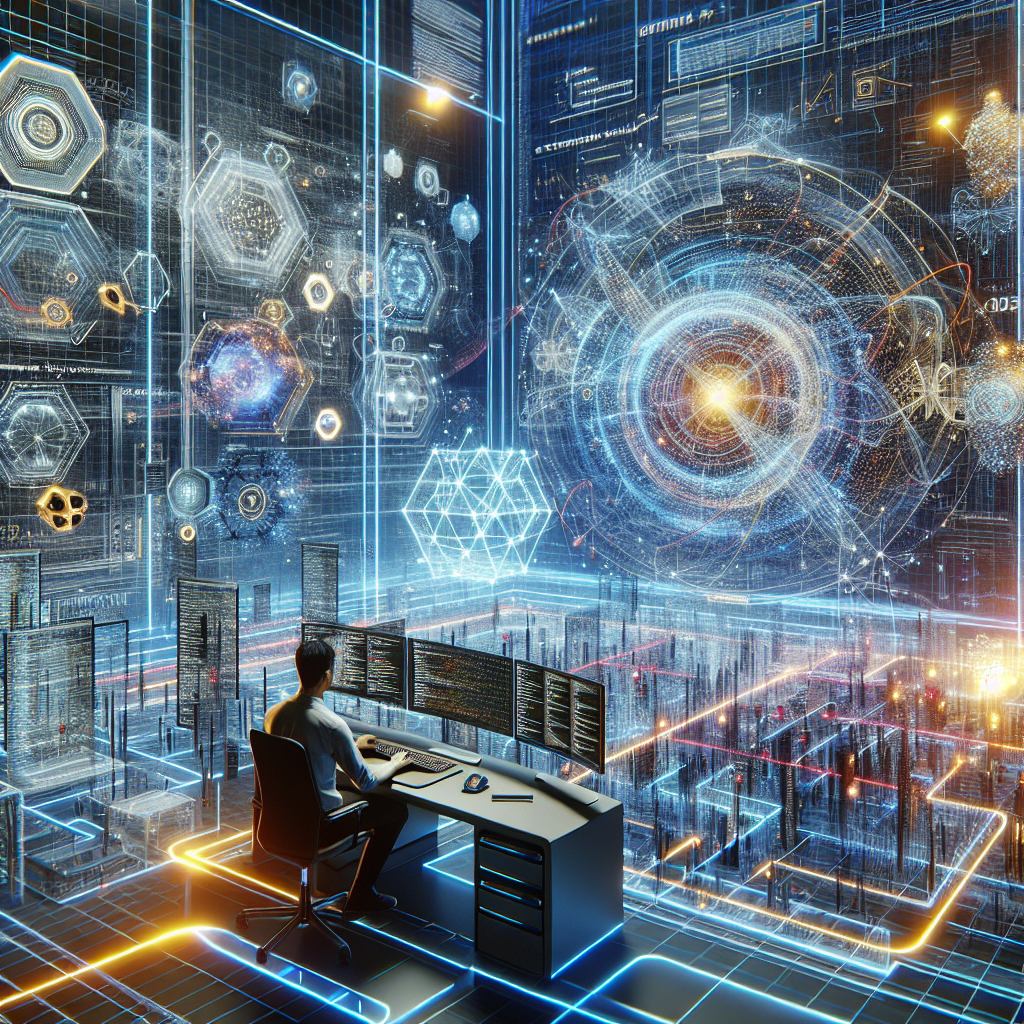The Future of AI: Autonomous Coding Projects
Artificial Intelligence (AI) has progressed rapidly over the past few years, leaving many wondering just how far this technology will go. In an illuminating discussion, AI experts delve into the potential future of AI, particularly in the realm of autonomous coding projects. Within the next half-decade, we may find ourselves working alongside AI that can handle complex coding tasks independently. This development will not only reshape the tech landscape but also redefine the very nature of software engineering.
Evolution of AI in Software Development
The journey of AI in software development has seen an impressive trajectory. Initially, AI tools provided basic code suggestions or functions. However, today's AI models are increasingly capable of performing more sophisticated tasks, such as generating entire code scripts and optimizing algorithms.
In a conversation about the future applications of AI in coding, an expert posited, "Even in one or two years, we'll find that you can use them for a lot more involved tasks than they can do now." This statement underscores the rapid advancements we are witnessing. Within the foreseeable future, AI could transition from being a mere coding assistant to an essential partner in handling entire coding projects.
Increasing Complexity and Autonomy
The key to this transformation lies in AI's ability to act coherently over extended periods. Imagine providing high-level instructions to an AI, which then writes multiple files, tests the code, and iterates based on the output. This shift from micro-tasks to macro-projects could unlock unprecedented efficiencies in software development.
"Fundamentally, the unlock is that it can act coherently long enough to write multiple files of code," the expert elaborated. Such advancements mean that AI will no longer need constant supervision for each step. Instead, it can autonomously carry out long-term coding projects.
The capability of learning, adapting, and improving through iterative processes signifies a significant leap towards AI's autonomous functionality. This is not just a futuristic dream but a near-term possibility.
Tackling Edge Cases and Error Recovery
One of the most significant challenges in coding is handling edge cases—situations that occur only at the extreme operating parameters of a system. Current AI models often struggle with these, frequently getting stuck without clear pathways to recovery. However, improved AI models are expected to handle these scenarios more efficiently.
"Models getting better at dealing with edge cases or when things go wrong, they know how to recover from it," the expert noted. The future AI's ability to generalize from other learned behaviors will enable it to navigate and correct errors without extensive data collection. This increases the model's sample efficiency and its overall robustness.
The evolution in error management and recovery will be instrumental in fostering user trust and reliability in AI-driven projects. Moreover, it reduces the time and effort required for human oversight, allowing developers to focus on more strategic aspects of their projects.
The New Paradigm of Software Engineering
As AI continues to advance, the software engineering landscape is set to undergo a paradigm shift. The traditional roles and responsibilities of developers will evolve, with AI taking on more repetitive and technical tasks, thereby freeing human programmers to concentrate on creative and high-level problem-solving.
Highly relevant insights on AI's potential impact can be found on MIT Technology Review. This resource offers extensive coverage of AI developments and their implications across various fields.
The integration of AI in software development raises pertinent questions about the future workforce. Will AI replace developers, or will it become an indispensable tool that enhances human capabilities? The consensus among experts leans towards the latter. AI is poised to augment, rather than replace, the human element in coding, making collaboration between man and machine more seamless and productive.
The Road Ahead: Opportunities and Challenges
While the prospects are exciting, the journey towards fully autonomous AI in coding is fraught with challenges. Training AI to handle complex projects requires massive datasets and sophisticated algorithms capable of understanding and executing nuanced instructions.
One of the key opportunities lies in the 'low-hanging fruit' of current AI training methods. "Since the whole area is pretty new, there's just a lot of low-hanging fruit in doing this kind of training," highlighted the expert. By capitalizing on these opportunities, developers can expedite the growth and capabilities of AI models.
Ethical Considerations and the Role of Human Oversight
As AI takes on more responsibilities, ethical considerations become increasingly important. Ensuring that AI operates within ethical boundaries and maintains transparency in its decision-making processes will be critical. Human oversight will be vital to monitor AI actions and intervene when necessary.
Furthermore, robust frameworks and guidelines will be necessary to govern AI's application in coding. These frameworks should focus on accountability, transparency, and fairness to ensure AI-driven projects adhere to the highest standards of integrity and trustworthiness. For deeper insights into ethical AI, visit AI Ethics Lab.
Conclusion: Embracing the Future
The rapid advancements in AI capabilities are transforming the way we approach coding and software development. From handling edge cases to managing entire projects autonomously, AI is set to become a cornerstone of the tech industry. While challenges remain, the opportunities for innovation, efficiency, and collaboration are immense.
As we stand on the cusp of this new era, it is crucial for developers, organizations, and policymakers to work together to harness the full potential of AI. By doing so, we can ensure that AI not only enhances our technological capabilities but also upholds the values and principles that drive innovation forward. The future of AI in software development is not just about making processes more efficient—it’s about creating a collaborative ecosystem where human ingenuity and AI prowess can coexist harmoniously.
In conclusion, the evolution of AI in coding is a testament to the relentless pursuit of innovation. As we look ahead, the promise of AI not just as a tool but as a partner in development is an exciting prospect that could redefine the boundaries of what's possible in the world of technology.
